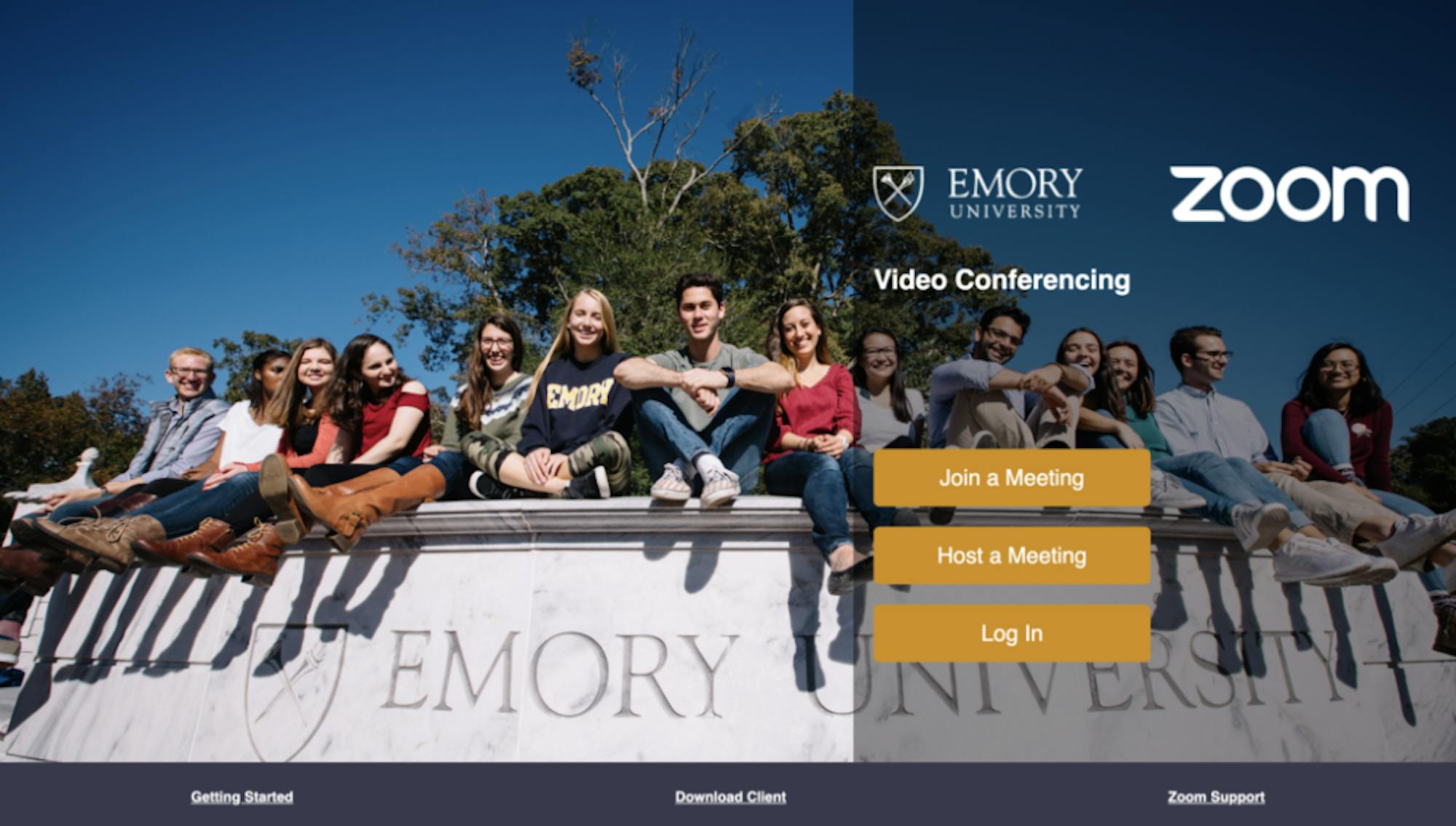Emory faculty, staff and students have reported six “Zoombombing” incidents since the transition to remote learning on March 23, according to Enterprise Chief Information Officer and Senior Vice Provost for Library Services and Digital Scholarship Rich Mendola.
Zoombombings are “instances of uninvited guests crashing online Zoom meetings, classrooms and webinars in order to shout slurs and share offensive materials,” according to an April 6 University-wide email.
Associate Professor in the Practice of Information Systems and Operations Management (ISOM) Michael Miller discussed an incident of Zoombombing in an April 1 ISOM 350 lecture of approximately 65 students.
“Some students came in and started off asking questions,” Miller said. “I started to answer the question; I thought it was legitimate. The students [registered in the class] figured out before I did and put on chat that these people were not from the class.”
Miller stated that the intruders used expletives and inappropriate language in both the video and chat features of Zoom. They did not convey hate speech or pornographic material, Miller said.
After 10 minutes, the individuals were kicked out of the class session. Miller used the program’s analytics to find that two of the intruders were students at another university and had logged into Zoom with non-Emory emails. After a couple of quick Google searches, Miller found that the intruders were connected to an Emory student in his class who presumably gave them the meeting ID.

Miller confronted the involved student about his connection with the intruders and asked him to immediately withdraw from the class, to which the student complied. No further disciplinary action was taken.
Since the incident, Miller has taken precautions to make sure a Zoomboming doesn’t happen again but noted that he does not believe it is only the responsibility of professors to prevent future incidents.
After the event, Miller went directly to the University’s Library and Information Technology Services (LITS) seeking technical support, but was dissatisfied with how the University handled the situation.
“There really wasn’t the support there; they really weren’t interested,” Miller said. “One of them actually referred to it as a ‘prank.’ They really did nothing. They were … trying to make alternate excuses for how the links got out there.”
In an April 7 interview with the Wheel, Mendola said that LITS is working to combat Zoombombing by communicating with the Emory community about preventative measures.
The University-wide email provided a variety of tips to protect from future incidents such as keeping meeting IDs private at all times, setting passwords for meetings, creating waitlists to enter meetings, restricting screen sharing and updating to the most recent versions of Zoom. However, Mendola did add that the likelihood of Zoombombing is low.
“Six incidents relative to the 165,000 meetings we’ve done in Zoom — it’s a small percentage of the denominator,” Mendola said. “This is not an issue of volume.”
Zoombombing incidents have been reportedacross the country at other universities, Alcoholics Anonymous meetings and at churches. Zoom’s increased usage in light of social distancing orders has resulted in escalated scrutiny of its privacy and security practices. On April 4, Zoom CEO Eric Yuan told The Wall Street Journal that “[He] really messed up” and vowed to improve security on the platform.
Miller also reported the incident to the Emory Police Department (EPD) at the request of the University and was later notified that the case had been assigned an FBI detective. All Zoombombing incidents should be reported to EPD, according to EPD Sgt. Ryan Andrews.




